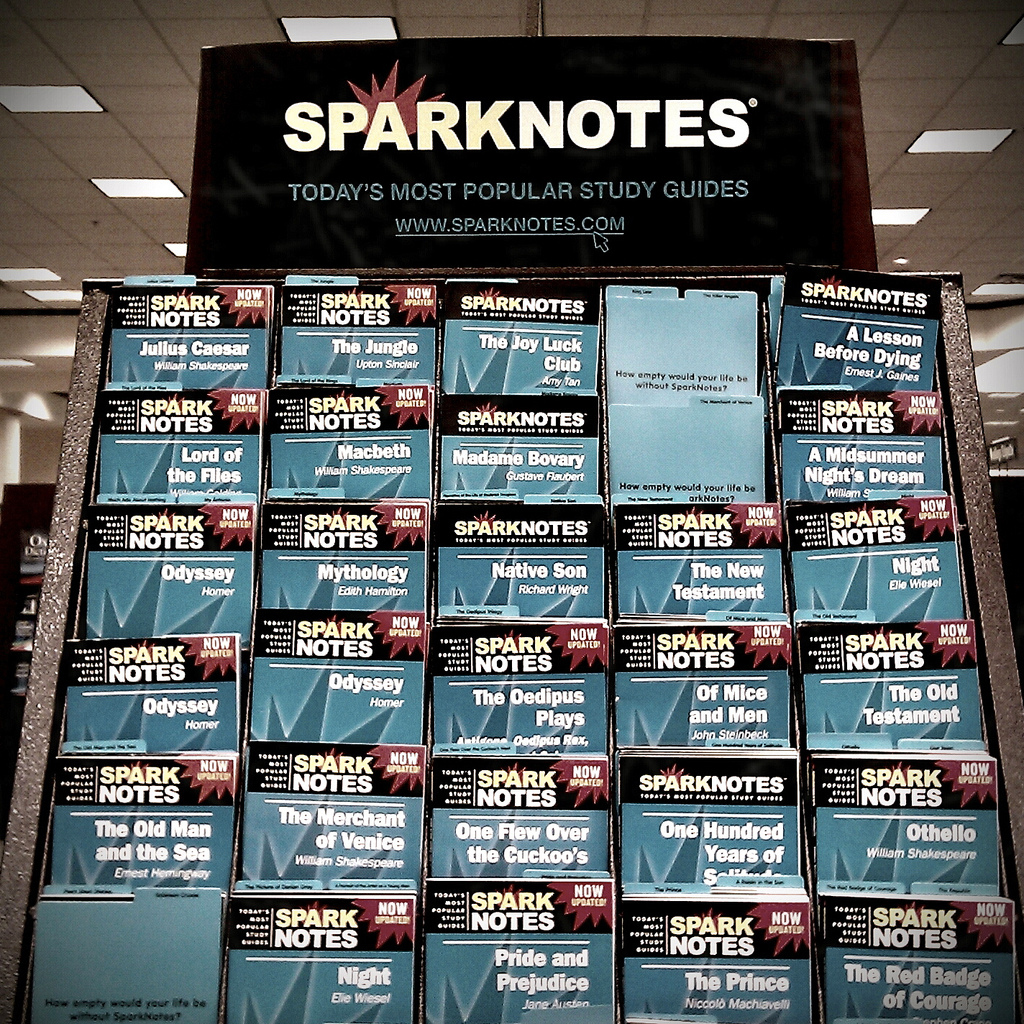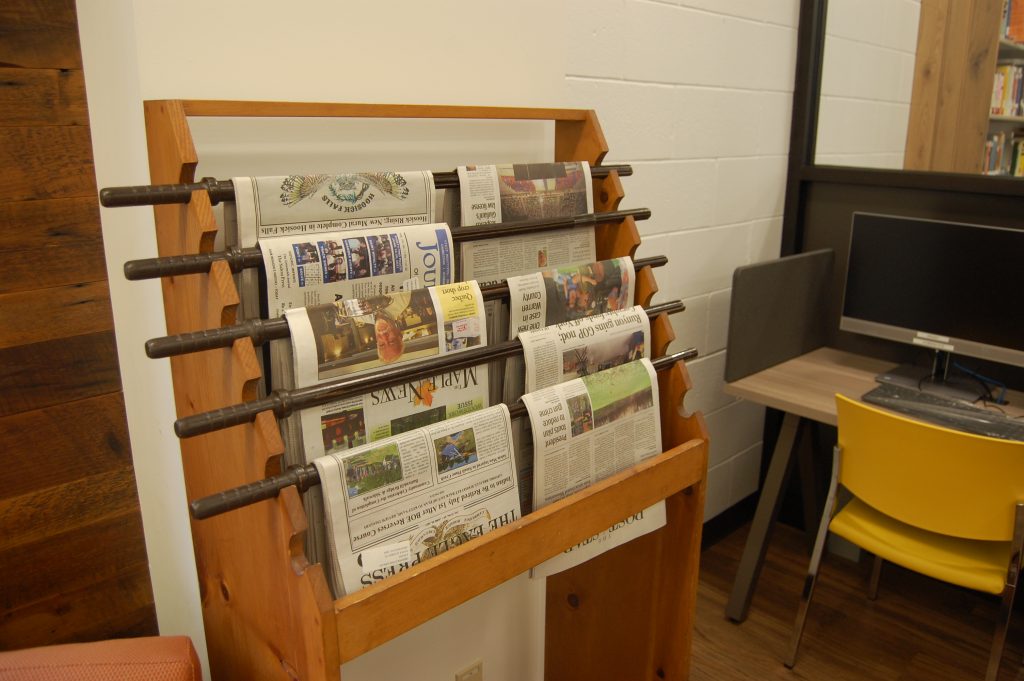By Kaylee Johnson
Campus News
Since attending both a two-year and four-year college, I have made some stunning realizations. The one that bothers me the most is the hard truth that few students actually bother reading their assigned texts. They carry around the books and shuffle through them during class, but when their professors are not standing over them, they brag about using a terrible website called SparkNotes to cheat on their homework. I realize that I sound like a Debby-do-right, but even English majors are using this website instead of reading for pleasure like prior literature and English majors did. Why are today’s college students so lazy when it comes to reading?
Last semester I had an English professor who was constantly talking about his absurd family stories and his tenure. One day he asked what he was doing wrong, because he felt he was not doing everything he could to make the class blossom. I was the only one who raised my hand, and I told him that he did not assign enough readings, as he was only assigning 20 pages per week. Even then, students were failing his reading quizzes weekly and you could tell by just looking at him that he was burned out. Everyone in that class looked at me with devilish eyes, but they were surprised to hear him say that he assigns enough reading as-is. He’s part of the problem; we need to challenge students, not coddle them. In a previous article I tried to dissect why so many high school and college students despise reading, and I pointed out that Shakespeare and Poe probably scare off reluctant readers. But here’s the issue with using SparkNotes in college: not only are you depriving yourself of useful and enriching knowledge, you are also setting yourself up to fail. Is it really that difficult to read a few chapters a day? I know a lot of college students have jobs and are taking the maximum amount of credits, but we all knew what we were getting into when we listened to our professors read the syllabus aloud on the first day of classes.
Put aside your personal grievances with reading, and think of it as a way to build your character and intellectual abilities. What will you do when you get into the workforce and all of your co-workers are talking about “The Bell Jar,” but you did not actually read it?
Most of all, I want students to stop bragging about cheating. It’s nothing you should be proud of, especially when a small fortune goes into expanding your academic palette and pushing you to grow into a well-rounded adult. Who would have known that the Internet would hurt academia? If used correctly, it could be used as a valuable learning tool, but many students are using it in vain these days. Currently, I am taking a computer science course, and people browse their social media accounts on the school desktops while the professor is lecturing. SparkNotes is one of many examples that prove that college was more serious before computers were everywhere. In almost every class, I notice at least one student desperately scrolling through Twitter or Instagram, like a deprived addict. Your writing, trigonometry, and poetry classes may not seem relative now, but you will find uses for every single one of them in the future, whether you use them to teach your future children, to think in more abstract ways, or use practical skills in your profession, will all depend on the path you pave for yourself.
If for some reason, you struggle with reading comprehension or time management, try some other tactics. Audiobooks are available for almost all popular books; that way you can listen to your assigned reading in the car or while relaxing. There is no excuse for using SparkNotes or an equivalent, unless you have already read the assigned reading, and you are refreshing yourself on particular plot points. And truthfully, your classmates and professors can tell if you have actually read, based on how simplistic or complex your comments during class discussions. Have some integrity, and open your mind to genres that don’t fancy your taste buds.
This article was not an attack on SparkNotes and websites like it, because there were resources like it before the Internet was as popular as it is now. Instead, it was meant to call out students who cheat on their assignments and consistently take the easy way out. Often, I have seen students letting their personal and academic lives intermingle, which can create poor grades and lax effort. Challenge yourself to do the maximum instead of the minimum; not only will you feel a newfound sense of pride in yourself, but your professors will also see the sudden improvement, and your grades will most likely rise. Just remember to be true to your own morals, and don’t cheat just because your friends engage in risky and careless behaviors.
Kaylee Johnson formerly attended Adirondack Community College and now attends the College of Saint Rose.








Facebook Comments